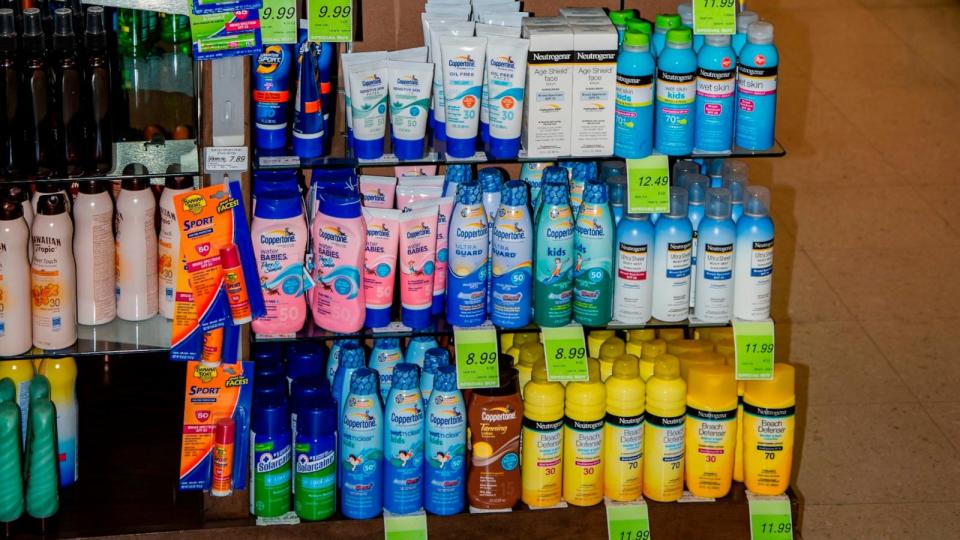Doctors say sunscreen protects skin despite influencers pushing misinformation
A number of social media influencers have begun spreading misinformation and discouraging followers from using sunscreen, but experts say sunscreen is a vital tool in protecting your skin, the body's largest organ, from cancer.
ABC News medical correspondent Dr. Darien Sutton joined "Good Morning America" on Friday to debunk some of the myths gaining traction online, some of which likely stem from past recalls of sunscreen contaminated with benzene, a known carcinogen.
"If you look at a lot of the products that we put on every day, we might see a chemical called oxybenzone. That is very different from benzene, and there is no conclusive evidence that that is associated to an increased risk of cancer," Sutton said.
Oxybenzone, the typical active ingredient in sunscreen, has caused concern among some social media influencers, but the compound can absorb harmful UVB radiation and some UVA radiation.

How to properly change your skin care routine for summer sun
According to the American Academy of Dermatology, skin cancer is now the most common cancer in the U.S., and the American Cancer Society projects that in 2024, over 100,000 new cases of melanoma, or cancer of the skin, are expected to be diagnosed and more than 8,000 will die from it.
The benefits of sunscreen
According to a study in the Journal of Clinical Oncology, the regular use of sunscreen can help reduce the risk of invasive melanoma by about 70% and has secondary benefits too, such as helping to prevent wrinkles and skin pigment changes caused by ultraviolet radiation.
What to look for in sunscreen
The American Academy of Dermatology recommends people use sunscreen with SPF 30 or higher, broad-spectrum protection, and water resistance. For children 6 months and older, parents and caregivers should help them apply kids sunscreen that also offers broad spectrum protection, water resistance and SPF of 30 or higher. Kids younger than 6 months should avoid direct sun exposure, wear light protective clothing and stay in shady areas.
"For kids, honestly at the end of the day, it's whatever they're going to keep on and be OK with reapplying. So, whatever method is best," Sutton said.
"If you're looking for good clothing, you want to look for that UPF signature that [indicates] that it protects against UV rays," Sutton added.
Sunscreen is also now available in different formulations, from sprays and lotions to oils, but as a reminder, Sutton noted that sunscreen needs to be applied before any makeup.
"A lot of people will spray sunblock over their makeup. It only works if you rub it in. So unfortunately, that might be convenient, but that's not effective. We've got to spray and rub in," Sutton said.
Doctors say sunscreen protects skin despite influencers pushing misinformation originally appeared on goodmorningamerica.com

